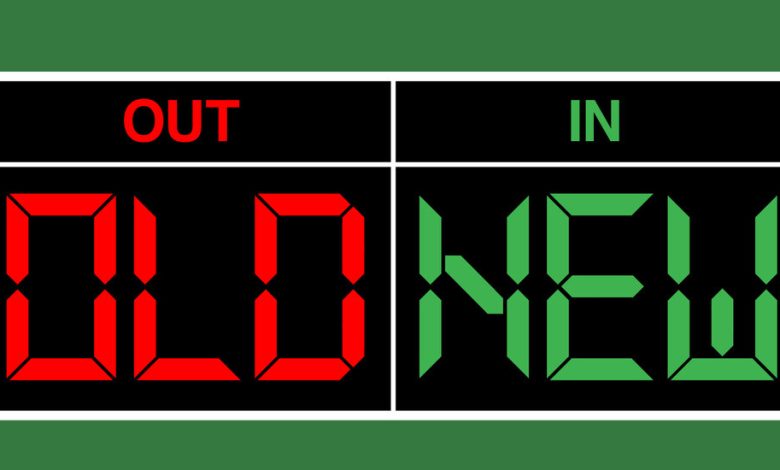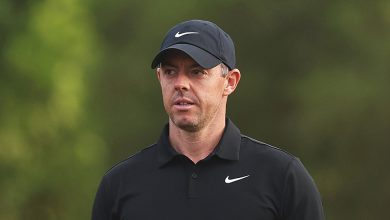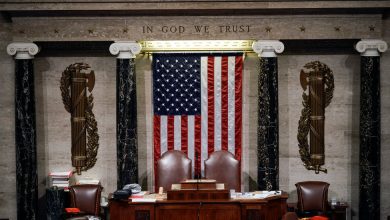Lionel Messi Is the Right Man for Argentina’s Post-Macho Moment

Argentina’s passionate football fans create the players they want to see. They adore, they chide, they analyze. And few have been on the receiving end of Argentine scrutiny like Lionel Messi, the improbably slight forward who has dominated the sport for 15 years.
Despite his global success, Argentines have doubted his patriotism and suggested he cared more about Spain, where he played for F.C. Barcelona until 2021, than his home country. Journalists have insulted him, in explicitly gendered language, describing him as “pecho frio,” or “cold chested.” After he led a technically inferior team to the 2014 World Cup final, his own grandfather criticized him on television as“somewhat lazy.”
This year’s World Cup is likely to be the last for Messi, who is 35. He has performed admirably, with three goals so far, helping Argentina secure its spot in the quarterfinals, where it will face the Netherlands on Friday. But Argentine fans have seemed to care as much about their captain’s journey as they have about winning football’s ultimate prize.
That is a striking difference from when he announced his (short-lived) retirement in 2016 because of his failure to deliver an international trophy. The team’s recent winning streak — interrupted only by a shocking loss to Saudi Arabia in the group stage — has gone a long way to ease tensions, but the pendulum has swung far beyond that. Messi, at least publicly, remains the same. Argentina, however, is a different country from the one he left in 2001 as a 13-year-old phenom. The feminist movement and its challenge to the patriarchs of football set off much of that transformation.
Messi has never fit the archetype of the “pibe,” an affectionate term for an Argentine football hero. The “pibe” was born in the poor neighborhoods of early 20th-century Buenos Aires. He outsmarted the elite with his trickery and wooed women with his charm. No one brought the figure to life more than Diego Maradona, who led Argentina to victory in the 1986 World Cup. Uncontrollable, Maradona symbolized rebellion against a militarized society. The Argentine public forgave, and often celebrated, his sexism, drug abuse and temper, which many saw as part of his “genius.”
In stark contrast, Messi, nicknamed “the flea,” is a subdued superstar. On the pitch, he pouts, he scowls and he even vomits. He was born in the provincial city of Rosario, where his father worked in a steel factory and his mother as a domestic servant. After he was diagnosed with growth hormone deficiency at 11 years old, Messi’s family worried his football dreams might be over. When F.C. Barcelona offered to pay for expensive medical treatments, he signed a contract on a napkin and moved with his father to Spain. On the rare occasions when Messi discusses his childhood, he mentions the pain of separation from his mother and siblings.
Female players and their feminist allies have vocally criticized the “pibe” model and the “win at any cost” mentality perpetuated by football. In the process, they have — in the years that coincided with the peak of Messi’s career — changed the country’s football culture.
Women began playing in Argentina more than 100 years ago, but football’s gatekeepers viciously shut them out. On the rare occasion that the national federation organized matches, it failed to pay the women. The disparity in support for the two national teams was among the largest in global sports.
In 2017, the national women’s team declared that it would go on strike. The federation’s corruption enabled sexual harassment and the diversion of funds earmarked for women’s development. It was dangerous for players who spoke out and many, including the former captain Estefanía Banini, suffered retribution.
Female players’ actions dovetailed with a blossoming of the feminist movement known as #NiUnaMenos, or “Not One Less.” Founded as a collective in Argentina that spread throughout Latin America, #NiUnaMenos organized general strikes and demonstrations to protest gender violence. #NiUnaMenos defined gender equity in broad terms, calling for reproductive rights, transgender rights and racial and class justice. The legalization of abortion in 2021 — nothing short of miraculous in a Catholic country shaped by a military regime that promoted a conservative gender ideology — was largely the result of this activism.
Fans also began to respond faster and more forcefully to incidents of gender discrimination. In the late 2010s, Argentine feminists formed gender commissions within football clubs, rewrote clubs’ antiquated bylaws, questioned discriminatory chants, and created safer spaces in the stands and clubhouses for women and L.G.B.T.Q.-identifying fans.
As waves of purple scarves, the emblem of #NiUnaMenos, flooded the streets of Argentine cities, Lionel Messi continued to thrive at F.C. Barcelona. He married a childhood friend and became a doting father of three. Diverging once again from the boyish and untamed “pibe,” Messi seems to genuinely delight in caring for his children. And he continued to astound defenders and electrify audiences. He won the Ballon d’Or, the award for the world’s best player, a record seven times; he played on a team that won the Champions’ League; he became the highest all-time scorer in Argentine history; and finally, he led Argentina to victory over Brazil in the 2021 Copa América.
Through it all, Lionel Messi has defied the machismo in Argentine football in his own gentle way. Football stadiums are part of a sexist ecosystem where displays of misogyny and homophobia are commonplace; organized fans called “barras bravas” have created terrifying conditions during matches. Messi has rejected this violence, collaborating with his hometown, Rosario, in its campaign against violence in the stadiums. The campaign’s public service video features brutal images of fans attacking one another while Messi cries.
Argentina’s squad and its coach, Lionel Scaloni, are as important in redefining masculinity in football as Messi is. Although most members of the squad play for European clubs, they were raised in Argentine youth academies, which export hundreds of players a year to ply their trade in leagues from Indonesia to the United States. In 2018, boys in these academies came forward to report sexual abuse they suffered there. Their experiences helped to reverse the stigma associated with sexual violence.
It would be hyperbolic to claim a symbiotic relationship between Messi and feminists in his home country. And, of course, discriminatory behavior continues to plague football in Argentina. In the qualifiers for this World Cup, Argentina received fines and punishments related to racist gestures and homophobic chants among fans. But it’s undeniable that there has been a push from grass-roots activists to reconsider what values really matter in Argentina’s national pastime. They have punctured crusty models of heroism, laying the groundwork for an iconography that seems much more suited to Messi.
One jingle called “You Deserve This Cup” features fans shouting the line, “I don’t want anything if it’s not with Leo.” Whether or not Messi is able to lead his team to victory against the Netherlands and into the semifinals and beyond, he can finally enjoy the affection he has always sought from his homeland.
Brenda Elsey (@politicultura) is a professor of history at Hofstra University and the co-author, with with Joshua Nadel, most recently, of “Futbolera: A History of Women’s Sports in Latin America.”
The Times is committed to publishing a diversity of letters to the editor. We’d like to hear what you think about this or any of our articles. Here are some tips. And here’s our email: [email protected].
Follow The New York Times Opinion section on Facebook, Twitter (@NYTopinion) and Instagram.





